Key takeaways:
- Security audits are an ongoing process that identify vulnerabilities in systems, focusing on technical aspects, processes, and user behavior.
- Regular audits enhance a culture of security awareness within organizations, fostering collective responsibility among team members.
- Lessons from security audits highlight the importance of configuration management and staying vigilant about potential risks, even in seemingly secure environments.
- Effective audits build trust between stakeholders, providing assurance to investors regarding the security of their interests in tech-driven platforms.
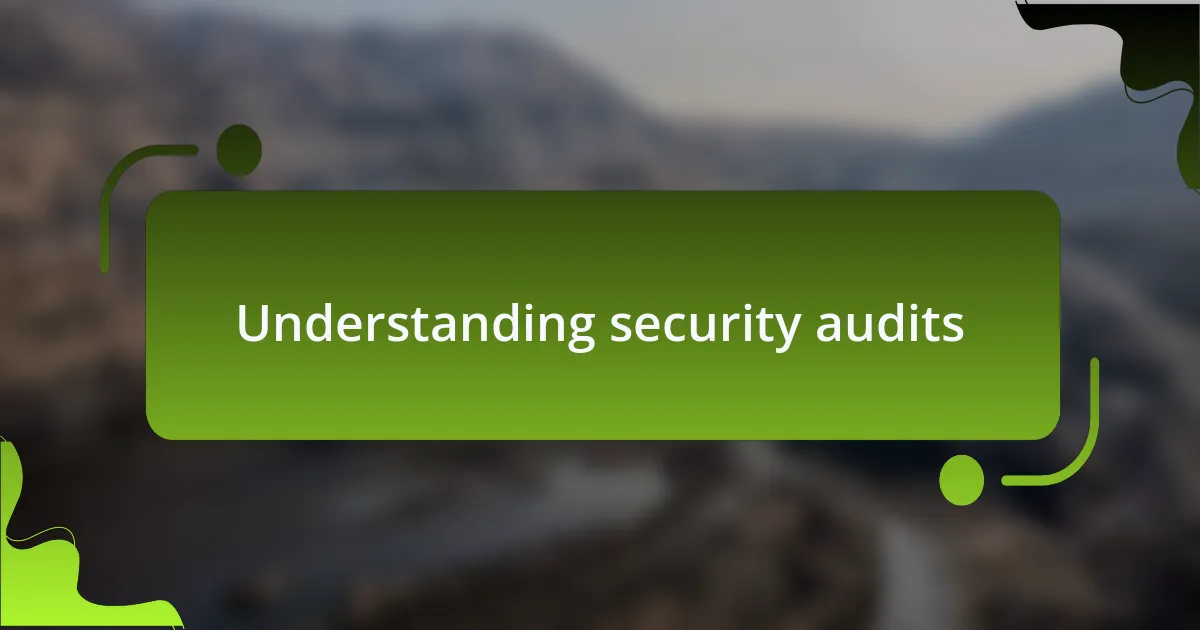
Understanding security audits
Security audits are a critical process that evaluates the integrity and security of a system, ensuring that vulnerabilities are identified and addressed. I remember the first time I participated in such an audit; the tension in the room was palpable. Everyone understood that a single oversight could potentially lead to significant security breaches, making it a moment of both anxiety and excitement.
What struck me was how comprehensive these audits can be. They don’t just focus on the technical aspects; they also assess processes and human factors. Have you ever thought about how often security relies on user behavior? I was amazed to learn that even the best security systems can fail if users aren’t trained or vigilant. This realization deepened my appreciation for how multifaceted security audits truly are.
Participating in a security audit revealed just how much preparation and ongoing analysis are needed to maintain security standards. It’s not a one-time event but a continuous cycle of assessment and improvement. I often ask myself, how can we truly feel secure in our digital operations if we’re not willing to regularly scrutinize them? This ongoing commitment is what builds real confidence in the long-term security of any platform.
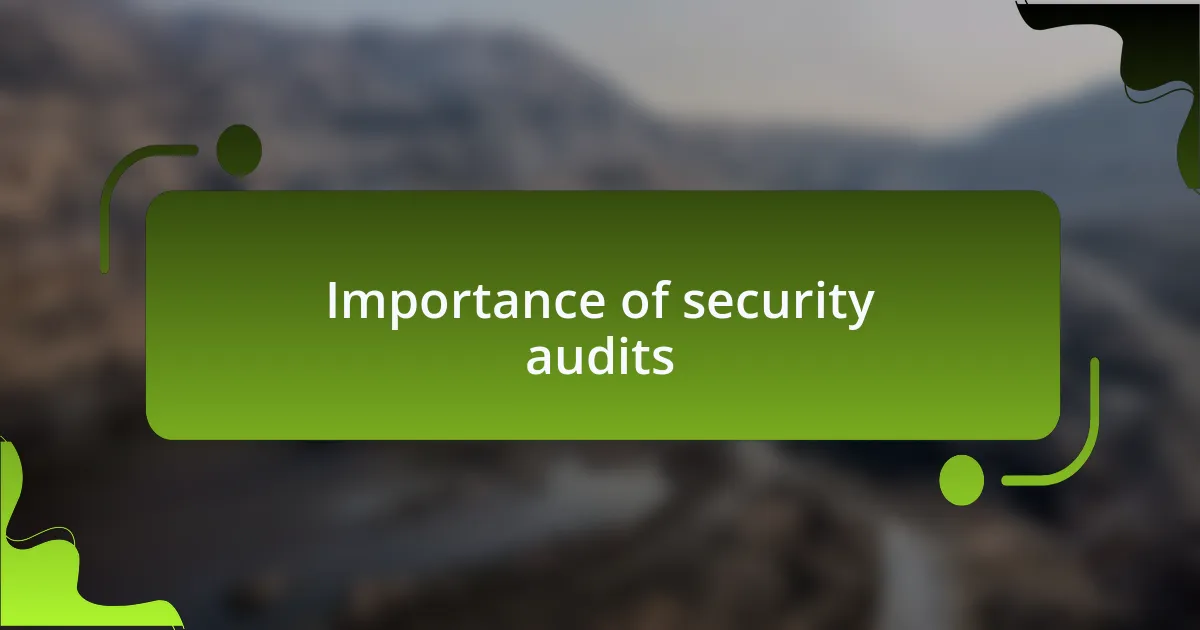
Importance of security audits
The significance of security audits cannot be overstated, especially in a landscape as volatile as crypto mining. I recall a specific case where a small oversight during an audit led to a major breach that caused a significant financial loss. It’s a stark reminder that security is only as strong as its weakest link, and regular audits serve to reinforce those links, ensuring that vulnerabilities are continuously monitored and addressed.
Moreover, these audits foster a culture of security awareness within an organization. I think back to my experience when we implemented a new auditing process; the change in mindset among team members was palpable. People started to take security seriously, asking questions and engaging in discussions about best practices. Isn’t it interesting how a proactive approach can transform the way individuals interact with their security responsibilities? When everyone feels a collective responsibility, the entire system becomes more robust.
Finally, security audits can also serve as a benchmark for trust between stakeholders. I remember presenting audit findings to potential investors; their response was one of relief and assurance. They gained confidence in our commitment to safeguarding their interests. Isn’t that the kind of foundation every business aims to build? The peace of mind that comes from knowing that the platform adheres to strict security standards is invaluable in this tech-driven world.
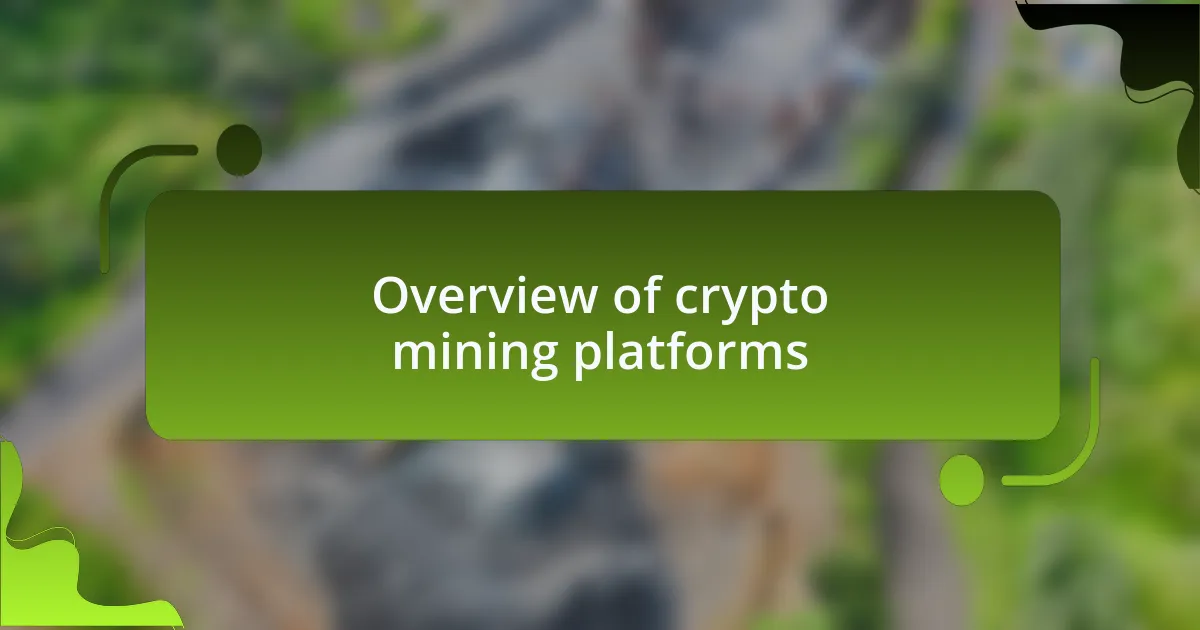
Overview of crypto mining platforms
Crypto mining platforms are crucial in the decentralized finance ecosystem, allowing users to earn cryptocurrency by contributing computing power. I remember my first experience with a mining platform; the excitement was palpable as I watched my earnings accumulate in real-time. There’s something fascinating about being part of a digital frontier where technology and finance intersect so seamlessly.
These platforms operate on various algorithms, with some opting for more energy-efficient methods while others are driven by sheer computational power. I often wonder about the environmental impact of these choices—are we compromising sustainability for profit? It’s a delicate balance that every miner must consider, particularly as the conversation around climate change intensifies.
Additionally, user interfaces can vary significantly among platforms, affecting accessibility for newcomers. When I explored different options, I was met with both intuitive designs and overwhelming complexities. It highlighted for me how critical user experience is—after all, the easier it is to navigate, the more likely individuals will engage with crypto mining. Have you ever felt discouraged by a platform’s design? It’s a reminder that as the industry evolves, user-centric functionality should remain at the forefront.
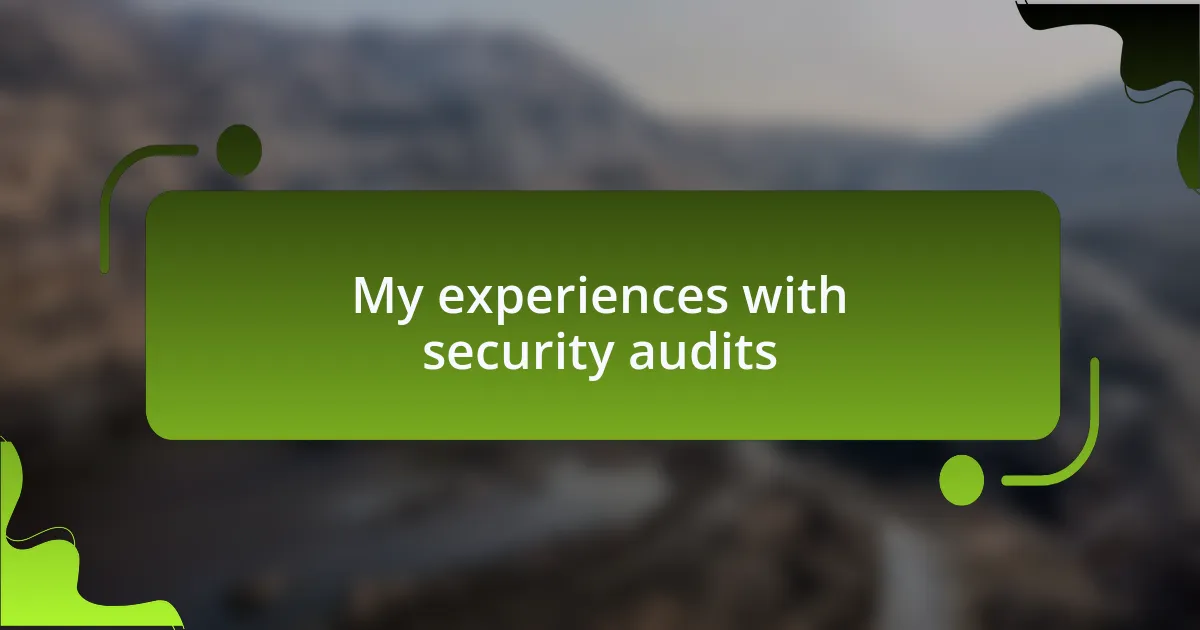
My experiences with security audits
My experiences with security audits have been eye-opening, to say the least. During one audit of a platform I was using, the process felt like peeling back layers of a complicated onion. With each layer revealed, I became more aware of potential vulnerabilities that I had previously overlooked. Have you ever felt that rush when you realize the importance of safeguarding your digital assets? It’s an enlightening feeling.
I recall another instance when a security audit unexpectedly flagged a minor configuration issue that, if left unchecked, could have led to significant consequences. That moment was a stark reminder of why I trust the audit process; it’s not just about finding faults but understanding how to fortify defenses. I found myself reflecting on how often we take security for granted, don’t you think?
The emotional investment I have in my crypto endeavors makes me appreciate strong security measures even more. Knowing that an audit could enhance the safety of my assets feels rewarding. It instills a sense of trust in the platforms I use. As I navigated through one recent audit, I felt a mix of anticipation and relief—anticipation for the findings and relief in knowing that I was taking proactive steps to protect my investments. Isn’t it reassuring to know that due diligence in security can safeguard our financial futures?
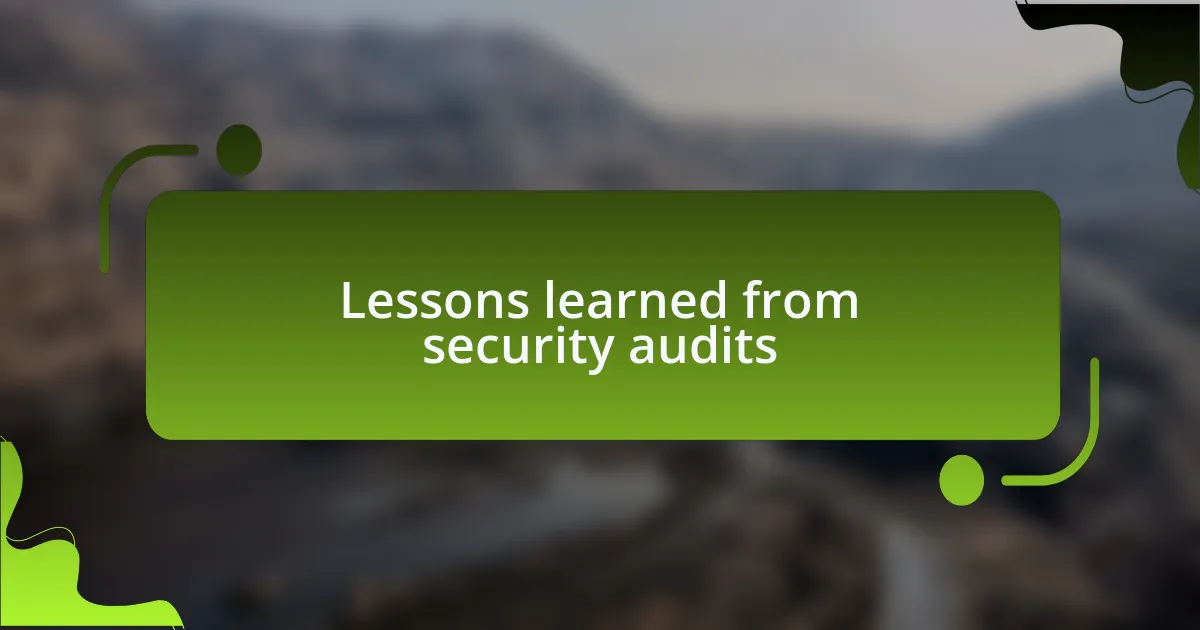
Lessons learned from security audits
Engaging with security audits has taught me that even the smallest oversight can lead to significant vulnerabilities. I remember conducting an audit on a platform that seemed secure on the surface. Yet, we discovered that outdated software was running in the background, offering an entry point for potential attacks. Isn’t it fascinating how something as seemingly benign as a software update can be the difference between security and a compromise?
In another instance, I was involved in an audit where we identified a misconfigured API, which posed a risk to user data. This experience underlined the fact that configuration management is as crucial as software security. Have you ever considered how many risks may lie hidden in your own system’s settings? It’s a wake-up call that reminds us all to scrutinize our configurations closely.
Ultimately, I’ve realized that security audits are not just a technical necessity; they evoke a sense of responsibility. There’s a strong emotional weight behind knowing I’m taking steps to protect my investments and user data. When I complete an audit and see actionable insights, it feels empowering. It’s this blend of knowledge and responsibility that keeps me engaged in the ongoing process of fortifying our digital landscape.